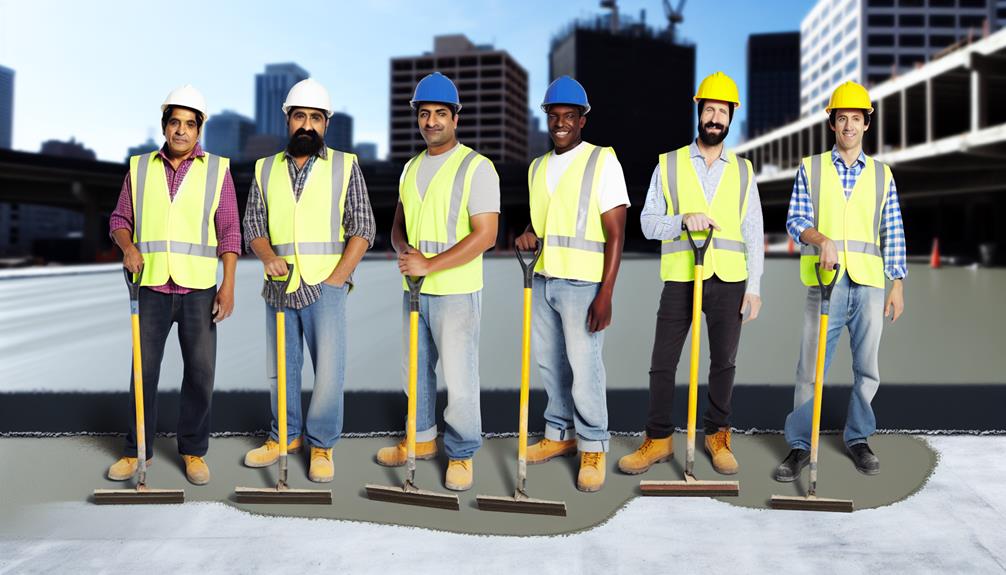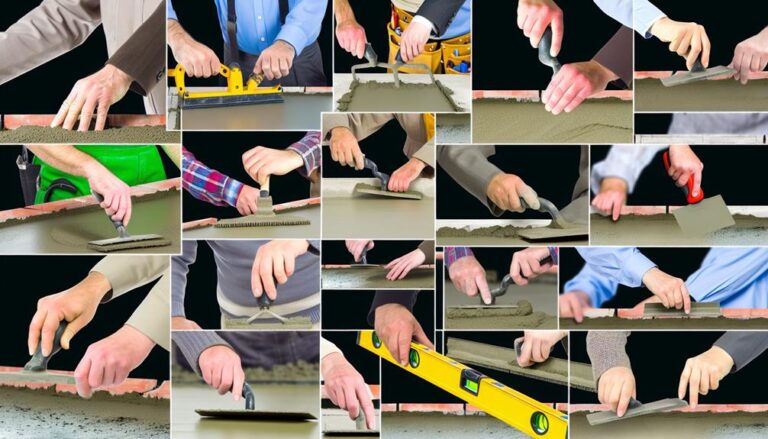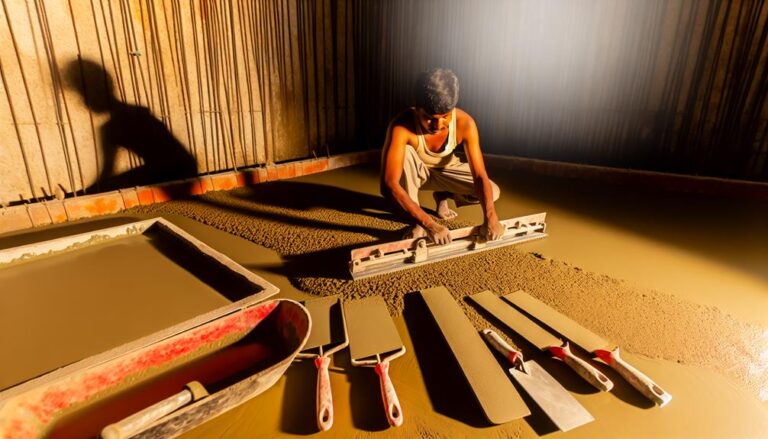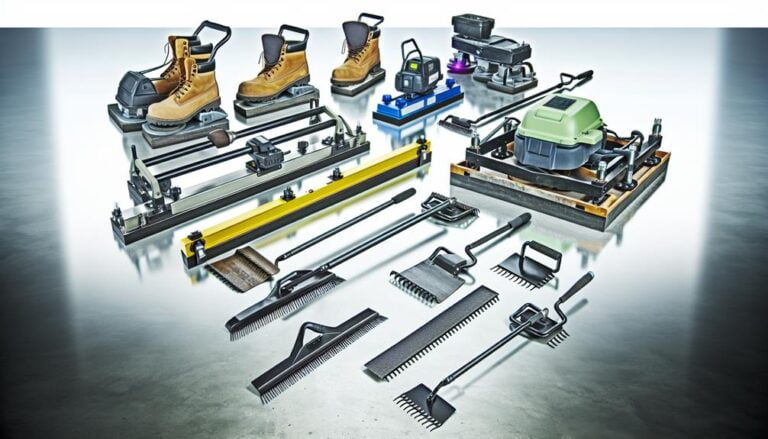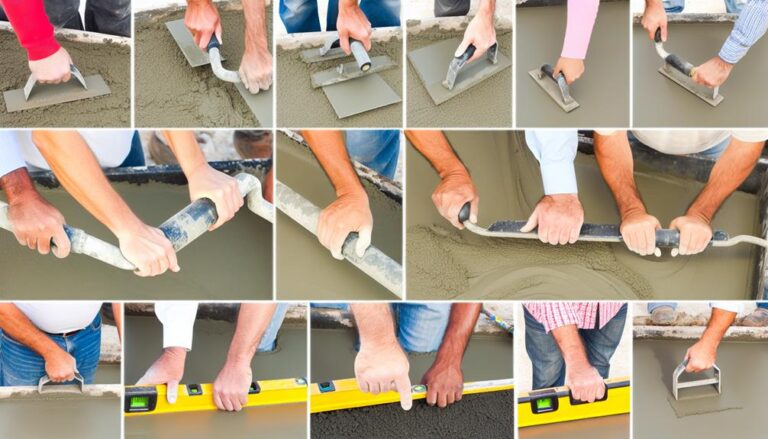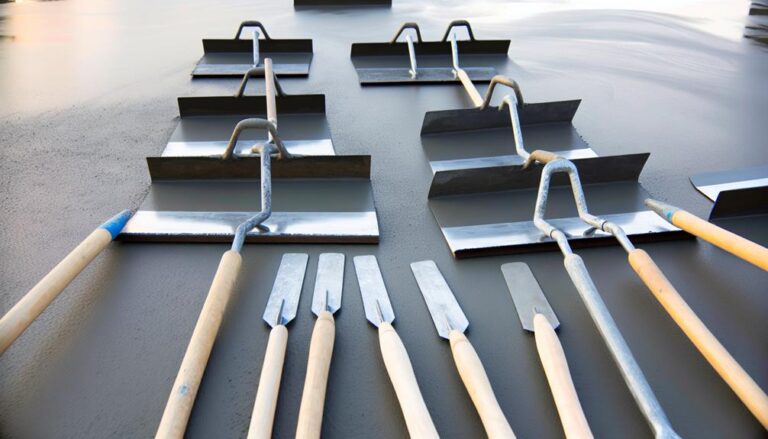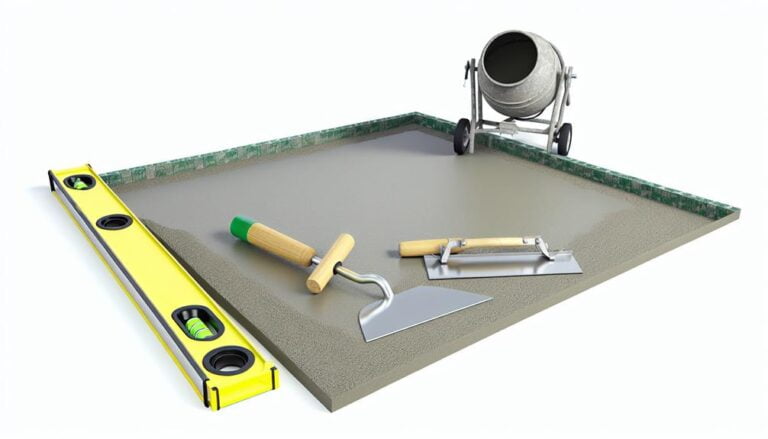Five Essential Tips for Professional Concrete Leveling
For successful concrete leveling, you'll need to understand the process basics first. It's essential to choose high-quality, user-friendly equipment, suited for your project. Applying correct techniques with precision is another key factor. Always prioritize safety, wearing appropriate gear and maintaining an organized workspace. Lastly, focus on maintaining consistent quality throughout your process. And remember, every project has its unique challenges, so dig deeper to learn how to handle them effectively.
Understanding the Basics of Concrete Leveling
Often, you'll find that understanding the basics of concrete leveling is essential for any successful home improvement or construction project. You're probably wondering what concrete leveling is. Well, it's simply the process of correcting uneven and sunken concrete slabs by altering the foundation underneath.
Concrete leveling can be a cost-effective alternative to replacing entire slabs. It's not just about beauty and aesthetics, but also safety. Uneven concrete can be a tripping hazard, so it's something you'll want to fix.
When leveling concrete, it's important to know what you're dealing with. There are two main types of concrete leveling: slabjacking and hydraulic jacking, also known as mudjacking and piering respectively. Slabjacking involves injecting a grout mixture underneath a slab to raise it back to its original level. Hydraulic jacking, on the other hand, uses steel posts to lift the slab back into place.
Understanding the type of concrete leveling you need for your project ensures you won't waste time or resources. It's one of the first steps to a successful concrete leveling project, and it's a step you can't afford to overlook.
Choosing the Right Concrete Leveling Equipment
Selecting the appropriate concrete leveling equipment is a critical step in ensuring the success and efficiency of your project. The right tools can make the job easier, safer, and more efficient. Here are some tips to guide you.
First, consider your project's scale. Small projects may only require a simple hand trowel, while larger ones may need a power screed or a laser leveler. Don't overcomplicate things – use what's necessary.
Second, examine the tool's quality. It's tempting to opt for cheaper alternatives, but this can lead to inaccurate leveling or even equipment failure. Invest in high-quality tools that'll last and perform well. Long-term, you'll save on repairs and replacements.
Next, consider the tool's user-friendliness. You don't want to waste time figuring out complex mechanisms. Look for equipment that's easy to use but doesn't compromise on precision.
Lastly, think about safety. Ensure the tool has safety features, like grip handles or an emergency stop function, to prevent accidents.
Choosing the right concrete leveling equipment is more than just picking the most expensive one. It's about finding the perfect balance between cost, quality, ease of use, and safety. Make a wise choice, and you'll see the difference in your work.
Key Techniques in Professional Concrete Leveling
In the realm of concrete leveling, mastering key techniques can significantly up your game and deliver professional results. You've chosen the right equipment, now let's focus on honing those techniques.
Firstly, it's crucial that you maintain an even pressure when applying your concrete mix. This ensures a smooth, level finish. It's easy to press harder in some areas than others, but inconsistency can lead to an uneven surface.
Secondly, don't rush. It's tempting to speed through a job, but patience is key here. Concrete leveling isn't a race. It's about precision and attention to detail. Take your time to ensure each section of your surface is perfectly level.
Thirdly, master the art of screeding. This is the process of flattening and smoothing the concrete using a straight edge. With practice, you'll become adept at creating an even, level surface.
Safety Measures During Concrete Leveling
While mastering these techniques can give you a professional finish, it's equally important to prioritize safety during the concrete leveling process. Don't undervalue the role personal protective equipment (PPE) plays. Always wear sturdy work boots to protect your feet from falling objects and potential hazards on the ground. Safety glasses are a must to shield your eyes from dust and debris. And don't forget your gloves to avoid concrete burns and your hard hat to guard against head injuries.
You'll also want to employ safe work practices. Don't rush the job. Hurrying can lead to mistakes and injuries. Instead, take your time and follow all safety guidelines. Be aware of your surroundings at all times, especially when operating heavy machinery. You don't want to accidentally back into someone or something.
Also, remember to stay hydrated and take regular breaks. Concrete leveling is strenuous work and can lead to heat stress if you're not careful.
Lastly, keep your workspace organized. A cluttered work area can lead to trips and falls. So, clean up as you go and keep walkways clear. Safety should always come first, no matter what.
Maintaining Quality in Concrete Leveling Projects
Regularly checking the consistency and levelness of your concrete mix is crucial to maintaining quality in your concrete leveling projects. This ensures that your work remains top-notch and meets the standards expected in the industry.
It's important to remember that quality isn't just about the end result, but also the process involved. This means adhering to correct procedures, using appropriate tools, and employing safety measures.
The table below outlines some key aspects to maintain quality in your concrete leveling projects:
| Aspect | Description |
|---|---|
| Consistency | Ensure the mix isn't too thin or too thick; it should hold its shape well. |
| Levelness | Regularly check the levelness during the project, make adjustments as needed. |
| Procedure | Stick to the correct steps and don't skip any part of the process. |
| Safety | Always wear appropriate safety gear and follow safe work practices. |
Frequently Asked Questions
What Is the Cost Comparison Between Professional Concrete Leveling and Doing It Yourself?
You're wondering about the cost comparison between professional concrete leveling and doing it yourself, right?
While DIY can save upfront costs, you may end up spending more fixing mistakes. Professionals might be pricier, but they've got experience and tools to do it right.
So, consider the potential for extra costs with DIY, and weigh that against the higher initial cost of hiring a pro.
It's not just about money, but also peace of mind.
Are There Any Environmental Considerations to Take Into Account When Leveling Concrete?
Absolutely, there are environmental considerations when leveling concrete. Did you know around 7% of global CO2 emissions come from cement production?
So, if you're eco-conscious, you'll want to minimize wastage during leveling. You'll also need to consider the disposal of excess concrete, which can negatively impact landfills.
Can Concrete Leveling Be Done in All Climatic Conditions?
You can't level concrete in all climate conditions. Extreme cold or heat can affect the curing process, leading to issues like cracking.
In very cold weather, you'll need to use special additives to prevent the concrete from freezing. In high heat, you might have to cool the concrete or use retarders to slow down the curing.
How Much Time Does It Usually Take for a Professional Concrete Leveling Job to Be Completed?
Just like baking a cake, professional concrete leveling isn't a quick process. It typically takes about 1-2 days to complete, depending on the project's size and complexity.
However, you've got to consider the curing time too. It's the period the concrete needs to harden and gain its full strength. This could take up to 28 days.
What Are Some Common Mistakes to Avoid When Hiring a Professional for Concrete Leveling?
When hiring a pro for concrete leveling, you should avoid a few common mistakes. Don't go for the cheapest bid without comparing quality.
Don't hire without checking references or past work. Avoid pros who demand full payment upfront. Don't skip on a written contract.
Lastly, don't ignore your gut feeling. If something doesn't feel right, it's okay to find another contractor.
These steps ensure you hire a trustworthy professional.
Conclusion
Wrapping up, mastering concrete leveling is like mastering a musical instrument – it takes time, patience, and practice.
Remember, understanding the basics, choosing the right tools, employing key techniques, prioritizing safety, and maintaining quality are your five golden tickets to success.
Keep honing your skills and soon you'll be playing the symphony of concrete leveling like a pro, creating flat, sturdy surfaces that stand the test of time.
